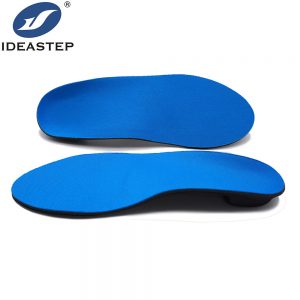
When choosing orthotic insoles for flat feet, there are a few key factors to consider. Here’s a step-by-step guide to help you make the right choice:
1. Consult a Healthcare Professional
It’s always a good idea to consult with a podiatrist or orthopedic specialist who can assess your feet and provide personalized recommendations based on your specific needs.
2. Arch Type
Determine your arch type. Flat feet typically have low or no arches. You can perform a simple wet footprint test by wetting your feet and stepping onto a piece of paper to see the shape of your arches. This will help you understand the level of support you need.
3. Support Level
Look for orthotic insoles that provide adequate arch support. They should help lift and support the arches of your feet, providing stability and reducing excessive pronation (inward rolling of the foot).
4. Cushioning
Consider the cushioning provided by the insoles. Flat feet can be prone to overpronation, which may lead to discomfort and foot fatigue. Look for insoles that offer sufficient shock absorption and cushioning to reduce impact on your feet.
5. Material
Orthotic insoles are available in various materials such as foam, gel, and rigid plastic. Choose a material that offers a balance between comfort and support. Foam-based insoles are generally more comfortable, while rigid plastic provides firmer support.
6. Size and Fit
Ensure that the insoles fit properly inside your shoes. Most insoles come in standard shoe sizes, but you may need to trim them to fit perfectly. Follow the manufacturer’s guidelines for sizing and trimming.
7. Footwear Compatibility
Consider the type of footwear you’ll be using the insoles with. Some insoles are designed specifically for athletic shoes, while others are suitable for dress shoes or casual footwear. Choose insoles that are compatible with the shoes you wear most often.
8. Gradual Adaptation
If you’re not used to wearing orthotic insoles, it’s important to give your feet time to adapt. Start by wearing them for short periods and gradually increase the duration as your feet adjust.
Remember, everyone’s feet are unique, so what works for one person may not work for another. It’s a good idea to try out different options and see which orthotic insoles provide the best comfort and support for your flat feet.
If you need orthotic insoles for flat feet, you can click here.
